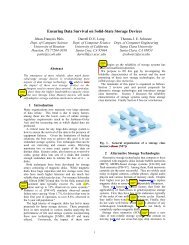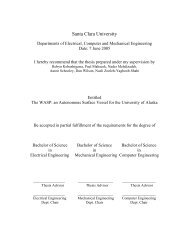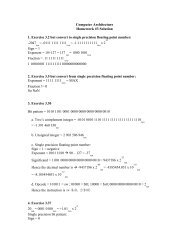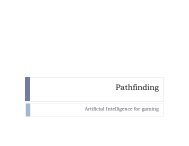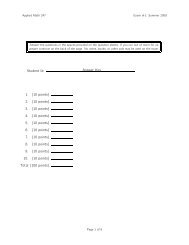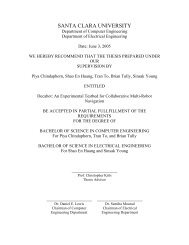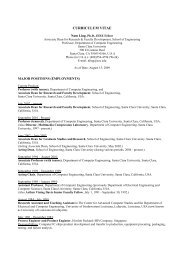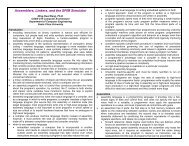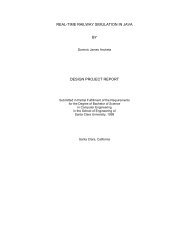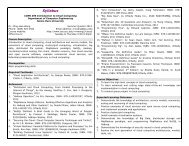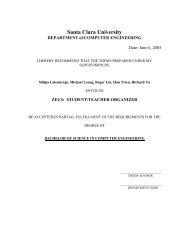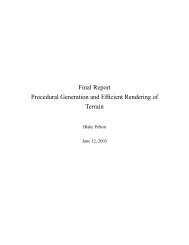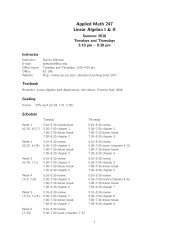Issues in Computer Forensics
Issues in Computer Forensics
Issues in Computer Forensics
Create successful ePaper yourself
Turn your PDF publications into a flip-book with our unique Google optimized e-Paper software.
computer 32 . Many people have access to computers, <strong>in</strong>clud<strong>in</strong>g those with crim<strong>in</strong>al<br />
<strong>in</strong>tentions. In some cases, computers are simply fancy storage devices for keep<strong>in</strong>g<br />
records. When this is the case, exam<strong>in</strong>ation of the computer (as previously expla<strong>in</strong>ed)<br />
can produce valuable evidence.<br />
In legal cases that <strong>in</strong>volve seizure of a computer or other electronic device, it is<br />
important that <strong>in</strong>vestigators comply with the Fourth Amendment. The Fourth<br />
Amendment states:<br />
The right of the people to be secure <strong>in</strong> their persons, houses, papers, and<br />
effects, aga<strong>in</strong>st unreasonable searches and seizures, shall not be violated,<br />
and no Warrants shall issue, but upon probable cause, supported by Oath<br />
or affirmation, and particularly describ<strong>in</strong>g the place to be searched, and<br />
the persons or th<strong>in</strong>gs to be seized. 33<br />
The amendment mandates that, <strong>in</strong> order to search a suspect’s personal property,<br />
the <strong>in</strong>vestigat<strong>in</strong>g officer must first obta<strong>in</strong> a search warrant. This is true for any electronic<br />
devices found <strong>in</strong> the suspect’s home, work, or that are considered personal property.<br />
Failure to do so will often result <strong>in</strong> a suppression of the evidence. In other words,<br />
evidence illegally obta<strong>in</strong>ed cannot be used dur<strong>in</strong>g prosecution.<br />
A search conducted without a warrant is not illegal if it does not violate a person’s<br />
reasonable expectation of privacy. With respect to a computer, “the Fourth Amendment<br />
generally prohibits law enforcement from access<strong>in</strong>g and view<strong>in</strong>g <strong>in</strong>formation stored <strong>in</strong> a<br />
computer without a warrant if it would be prohibited from open<strong>in</strong>g a closed conta<strong>in</strong>er and<br />
exam<strong>in</strong><strong>in</strong>g its contents <strong>in</strong> the same situation.” 34 Typically, a computer is protected from<br />
such search and seizure when it is under the control of the owner. However, when the<br />
device is under the control of another person, the owner has less expectation of privacy if<br />
that person is allowed to access the system. For example, the computer is temporarily<br />
24



